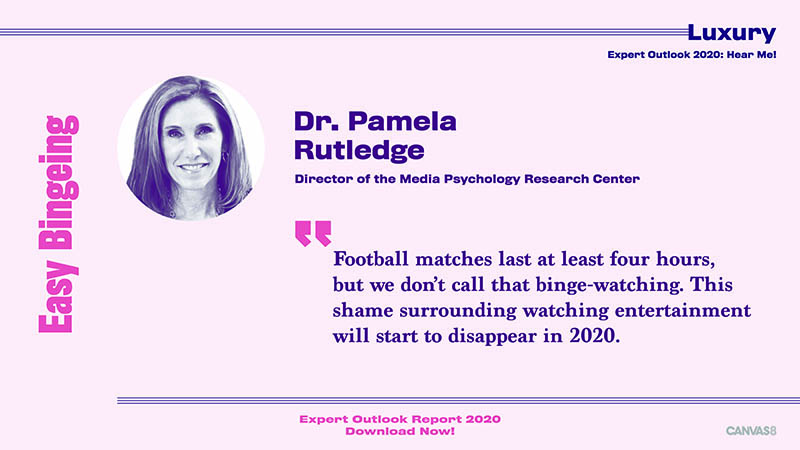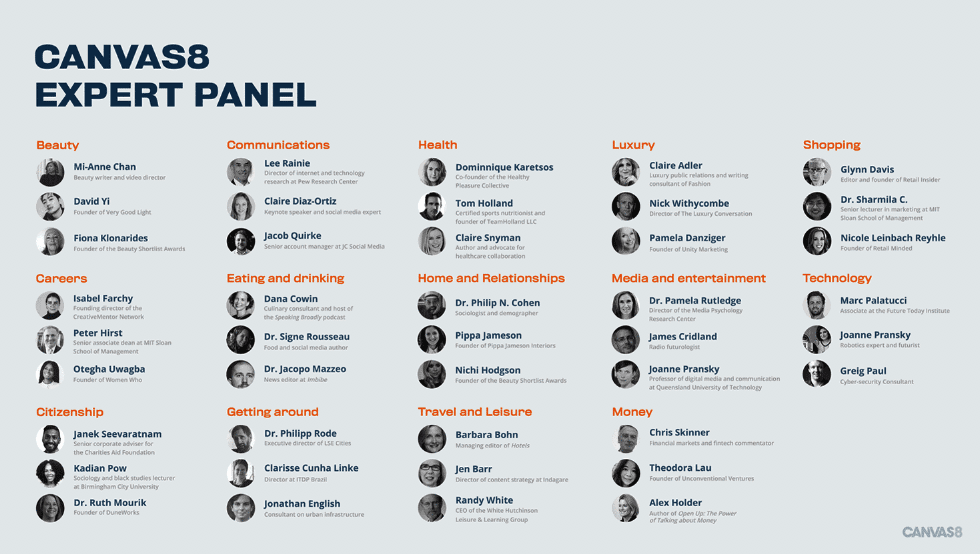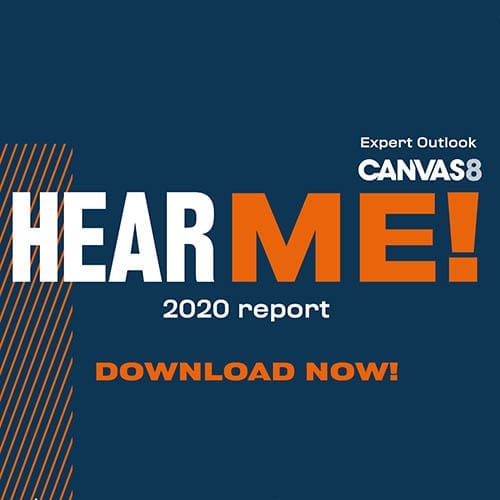Canvas8 Expert Outlook 2020
As part of Canvas8’s Expert Outlook 2020 Report, I comment on the cultural and behavioral drivers impacting media and consumer behavior in the year ahead. I always enjoy contributing to Canvas8’s yearly Expert Outlook which brings together 42 impressive experts across 14 sectors. This year’s theme is HEAR ME! Media consumers are getting smarter, devices more personal and control is in their hands. #Bingewithoutshame.

Media Consumption: Personal Choice Not Guilty Pleasure
People are short on time and want more personalized media experiences. Mobile has become the go-to source for entertainment, so media companies will look to curate linear narratives for the small screen. This has implications for production quality, camera angles and sound. In addition, it implies that the concept of “snackable content” so big in content marketing will move to entertainment channels, increasing the interest in more chunk-able segments.
This will be driven by new technologies that can increase optimization for mobile, better access to streaming, smarter devices, and an increasing ability to get both short- and long-form content. All of this means that people will have more control over what they watch and producers will scramble to get their share. Attention is limited by time which is a finite resource. Each person only has 24 hours in a day (so far.)
The logical extension of what we see in content marketing and the success of YouTube is a new form of content that is chapter-driven rather than episodic. Think ten-minute chunks instead of a 30-minute story arc so that people can watch things on public transportation or while they are waiting in line.
It also means people can better control their consumption habits. As a result, people won’t internalize all this misplaced and societal “guilt” about their media consumption choices. Watching more than one episode of a program has been saddled with the pejorative label, binge-watching. In some academic literature, binge-watching is two or more episodes of the same show. It’s ironic that we say that’s binge-watching but if you change the channel, it’s not counted. Football matches last at least four hours, but we don’t call that binge-watching. The implicit assumption in the construct of “binge-watching” is the loss of control.
As people begin to consume a more time-varied diet of media, it will increasingly emphasize the role of intention and personal control that differentiate consumption patterns and the range of psychological experience. (Yes, there are BENEFITS in entertainment and fandom. It’s okay to have fun.) The generalized shame surrounding entertainment media will start to disappear in 2020.
Read the full report here: https://bit.ly/2RIlSRk #expertoutlook2020


 Dr. Pamela Rutledge is available to reporters for comments on the psychological and social impact of media and technology on individuals, society, organizations and brands.
Dr. Pamela Rutledge is available to reporters for comments on the psychological and social impact of media and technology on individuals, society, organizations and brands.